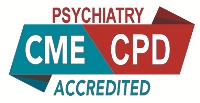Heela Azizi and Alexa Kahn
American University of Antigua, USA
Title: Body dysmorphic disorder: A systematic review of treatment and management
Biography
Biography: Heela Azizi and Alexa Kahn
Abstract
Objective: Body dysmorphic disorder (BDD) is a severe psychiatric disorder that affects many around the world. Patients with BDD exhibit a preoccupation with one or more perceived defects in their physical appearance which is exacerbated by poor insight and delusions regarding the perceived bodily flaw. BDD is more prevalent in an all clinical setting than in the general community population, but goes undiagnosed due to lack of screening for the disorder. Therefore, this literature review is aimed to determine most effective treatment for BDD.
Method: A systematic literature review was piloted using PubMed, ScienceDirect, Embase and the American Psychological Association PsycINFO to determine the most effective treatment for BDD.
Results: We found that serotonin reuptake inhibitors (SSRIs) and cognitive behavioral therapy (CBT) are efficacious in treating body dysmorphic disorder. Randomized control studies found both SSRIs and CBT (especially with imagery restructuring) to be successful in treating BDD if used for longer than six months. Recent case studies suggest electroconvulsive therapy (ECT) and adjunctive antipsychotic use are viable treatment modalities for treatment resistant BDD.
Conclusions: SSRIs are the recommended pharmacologic agent for treatment, primarily fluoxetine. It should be continued for 12-16 weeks although increasing the medication to maximum dose for additional 24 weeks duration is more appropriate. Furthermore, newer research has shown imagery restructuring as an efficacious treatment for mild to moderate BDD as it is faster than CBT and can give patients more insight on the disorder.

